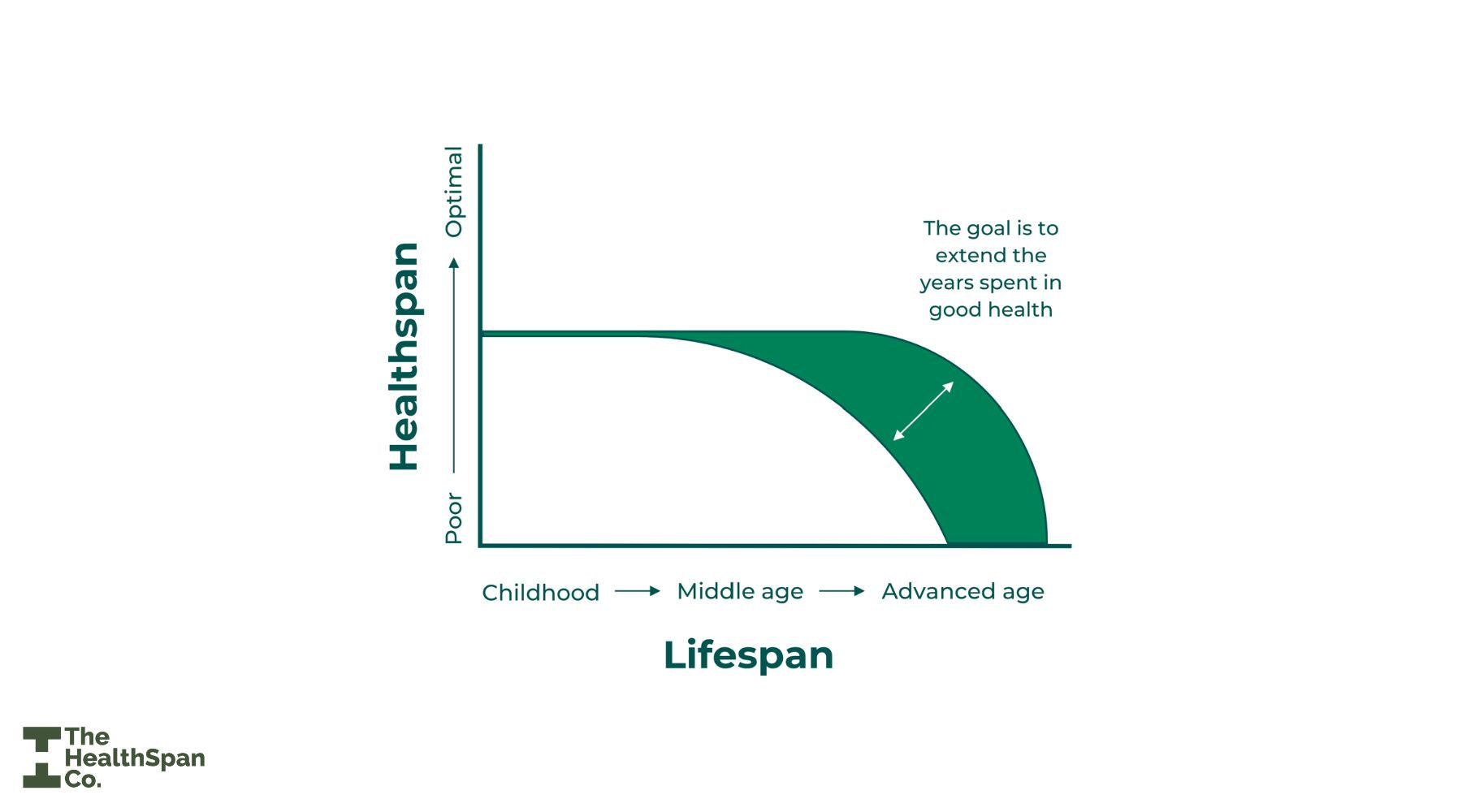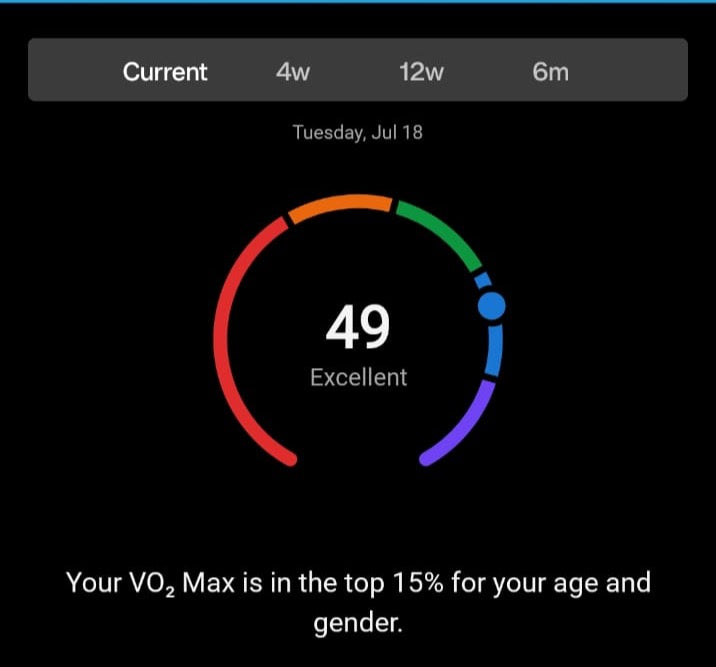
The Science of Healthspan: Living Longer & Better
Middle age is a pivotal phase in our lives, characterized by a multitude of changes. It's a time when we often reflect on our health and well-being, and rightly so. While many may think that the pursuit of a longer life is all about lifespan, the real goal should be to extend your healthspan.
Healthspan refers to the length of time during which an individual enjoys good health and maintains a high quality of life, free from the burden of chronic diseases and disabilities. Essentially, it measures the number of years you spend in good health as opposed to simply living longer. Maximizing your healthspan is all about ensuring that you remain active, energetic, and disease-free for as long as possible.
Why Middle Age Matters
You might wonder why middle age is the right time to start focusing on your healthspan. Well, there are several compelling reasons:
-
Accumulated Lifestyle Effects: By middle age, most of us have accumulated years of various lifestyle habits. These habits can either support or undermine our health. Middle age is a pivotal moment to reassess and make positive changes.
-
Early Warning Signs: Many chronic health conditions, such as hypertension, high cholesterol, and prediabetes, tend to emerge in middle age. Detecting and managing these issues early can significantly impact your healthspan.
-
Hormonal Changes: Middle age often brings hormonal changes, particularly for women during menopause and men experiencing andropause. These changes can affect various aspects of health, and addressing them proactively is essential.
-
Foundation for Aging: The choices you make in middle age can lay the foundation for your later years. Investing in your health now can pay off in terms of a longer, healthier life in the future.
How to Improve Your Healthspan
Improving your healthspan doesn't require drastic changes or turning your life upside down. Instead, it involves making sustainable, science-backed choices that can enhance your well-being. Here are some key strategies:
-
Maintain a Balanced Diet:
- Prioritize fruits, vegetables, whole grains, lean proteins, and healthy fats.
- Limit your intake of processed foods, added sugars, and excessive salt.
- Stay hydrated by drinking plenty of water.
-
Regular Physical Activity:
- Engage in both aerobic exercises (like walking, jogging, or swimming) and strength training.
- Aim for at least 150 minutes of moderate-intensity exercise or 75 minutes of vigorous-intensity exercise per week.
-
Prioritize Sleep:
- Ensure you get 7-9 hours of quality sleep each night.
- Establish a consistent sleep schedule and create a relaxing bedtime routine.
-
Manage Stress:
- Practice stress-reduction techniques such as meditation, deep breathing, or yoga.
- Consider seeking support from a therapist or counselor if needed.
-
Regular Health Check-Ups:
- Visit your healthcare provider regularly for preventive screenings and check-ups.
- Follow recommended vaccinations and screenings for your age group.
-
Healthy Weight Management:
- Aim for a healthy body weight by combining a balanced diet with regular exercise.
- Avoid crash diets and focus on sustainable, long-term changes.
-
Limit Alcohol and Tobacco:
- Consume alcohol in moderation or avoid it altogether.
- If you smoke, seek assistance to quit smoking.
-
Social Connection:
- Maintain strong social bonds with family and friends.
- Engage in activities that bring you joy and a sense of purpose.
-
Cognitive Engagement:
- Keep your brain active through reading, puzzles, learning new skills, or pursuing hobbies.
- Stay socially connected as it can also help keep your mind sharp.
-
Hormone Management:
- If necessary, consult with a healthcare provider about hormone replacement therapy to manage hormonal changes effectively.
Middle age is a critical juncture in our lives when the choices we make can profoundly impact our healthspan. While aging is inevitable, the extent to which it affects our well-being is not predetermined. By adopting a holistic approach to health, embracing a balanced lifestyle, and proactively managing age-related changes, you can extend your healthspan and enjoy a fulfilling, active, and disease-free life well into your later years.
Remember, it's never too late to start focusing on your healthspan. Small, gradual changes can yield significant benefits over time. So, seize the opportunity now, and invest in your future self. Your middle age is the perfect time to embark on this journey towards a healthier and happier life.




Leave a comment
This site is protected by hCaptcha and the hCaptcha Privacy Policy and Terms of Service apply.